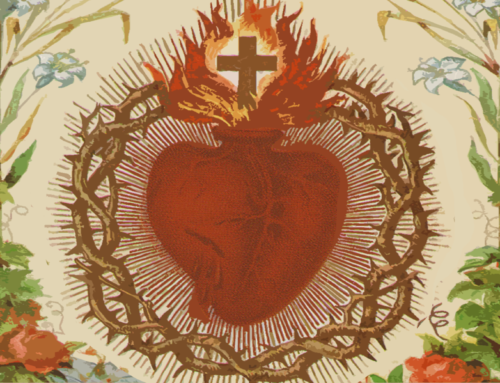Readings for Tuesday of the Seventh Week of Easter
I don’t know about your family, but in mine, “goodbyes” take forever. We have to start saying “goodbye” about 40 solid minutes before the time we actually intend to leave, and by that point, Italian cookies, money, and all sorts of other stuff you never asked for and probably don’t need have been forcibly shoved into your arms as you shuffle out the front door.
In our readings over the next few days, we’ll be hearing two very long “goodbye” speeches. In the first reading, St. Paul is delivering a heartfelt farewell to the Ephesian elders that he has worked so closely with and loves dearly. In the Gospel, we hear Jesus praying his High Priestly Prayer on the night of the Last Supper — a privileged, inside look at how Jesus was approaching his Passion and Death.
What I’d like to reflect on, however, is not the sadness or difficulty of saying goodbye… though we can certainly sense the heaviness in Paul’s words as he leaves behind the community with whom he had become so close. Instead, I’d like to take a few minutes to consider the incredible sense of confidence and accomplishment both Paula and Jesus exhibit. Both are entirely content with their hard work. Both have done what they were supposed to do, and they are satisfied. They are at peace.
But what exactly have they done? What great accomplishment gives both Saint Paul and Jesus such peace of mind as they move forward?
They both revealed God’s grace.
St. Paul puts it quite emphatically: “I did not shrink from telling you what was for your benefit… I earnestly bore witness for both Jews and Greeks to repentance before God and to faith in Our Lord Jesus… I am not responsible for the blood of any of you, for I did not shrink from proclaiming to you the entire plan of God.”
As painful as it is for Paul to say goodbye to the Ephesians, he’s able to say with confidence: “I’ve revealed the gospel of God’s grace. I’ve done what I set out to do.”
The same is true for Jesus, who in His own person IS God’s grace. He is Himself the Revelation of the Father’s love for us. And so he prays to His Father: “I revealed your name to those whom you gave me out of the world. Now they know that everything you gave me is from you, because the words you gave to me I have given them, and they accepted them and truly understood that I came from you.”
In effect, Our Lord is saying: “I’ve revealed Your Grace, Father.”
We’ve all transitioned from one stage of life to another — Maybe it was changing a job, or perhaps moving to a new town, or ending one relationship and beginning another. In my own case, it’s beginning to hit home that my time here at Mount Carmel is drawing to a close, and my immediate reaction, if I’m honest, is: “Did I do enough?” Maybe it’s natural for us to wonder at big moments of transition: “Did I do everything I was supposed to? Did I do everything I could?”
Anytime we leave behind one stage of life and enter another, we leave plenty of loose-ends… unfinished tasks… words unsaid… We’re not perfect, and our past is littered with all sorts of things we intended to wrap up more neatly, more completely before moving forward… but we just never got around to it.
Perhaps this stirs up a sense of regret — of things left undone. We hate that feeling of not finishing what we had set out to do, of leaving what looks to be a mess behind us.
I think the example of Paul and Jesus’ “goodbyes” give us hope — They teach us that the most important thing we can stake our life on is God’s grace. Rather than worry if we “did enough,” why don’t we ask ourselves instead: “Did I reveal God’s grace?”
And how do we do this?
By admitting we need God’s grace. By relying totally on grace in the first place. By surrendering, by abandoning ourselves to the Holy Spirit, by throwing in the towel and saying: “Father, Your will be done, not mine.” Both Paul and Jesus show us this principle in action vividly. Both have surrendered themselves entirely. Both have abandoned themselves to the mission of salvation that God sent them into the world to accomplish. That’s why Paul, for all his faults, can say: “By the grace of God, I am what I am, and his grace toward me was not in vain.”
Only then, when we have relied totally on God’s grace can we turn and say: “I have revealed Grace. I’ve done what I set out to do.”




